When I arrived in Beijing in 1972, Chou En-lai told me, “Your handshake came over the vastest ocean in the world—25 years of no communication.” (UPI/Bettmann Newspi)
When I arrived in Beijing in 1972, Chou En-lai told me, “Your handshake came over the vastest ocean in the world—25 years of no communication.” (UPI/Bettmann Newspi)

My 1985 decision to forgo Secret Service protection improved the quality of my foreign trips. In thousands of miles of travel since then, there has never been an incident. (Meeting people of Beijing during his 1989 visit) (Wide World Photos)
When Churchill visited Washington in 1954, he told me an American friend had given him one of those “machines”—a Dictaphone—but that he preferred to dictate to a pretty secretary. (UPI/Bettmann Newsphotos)
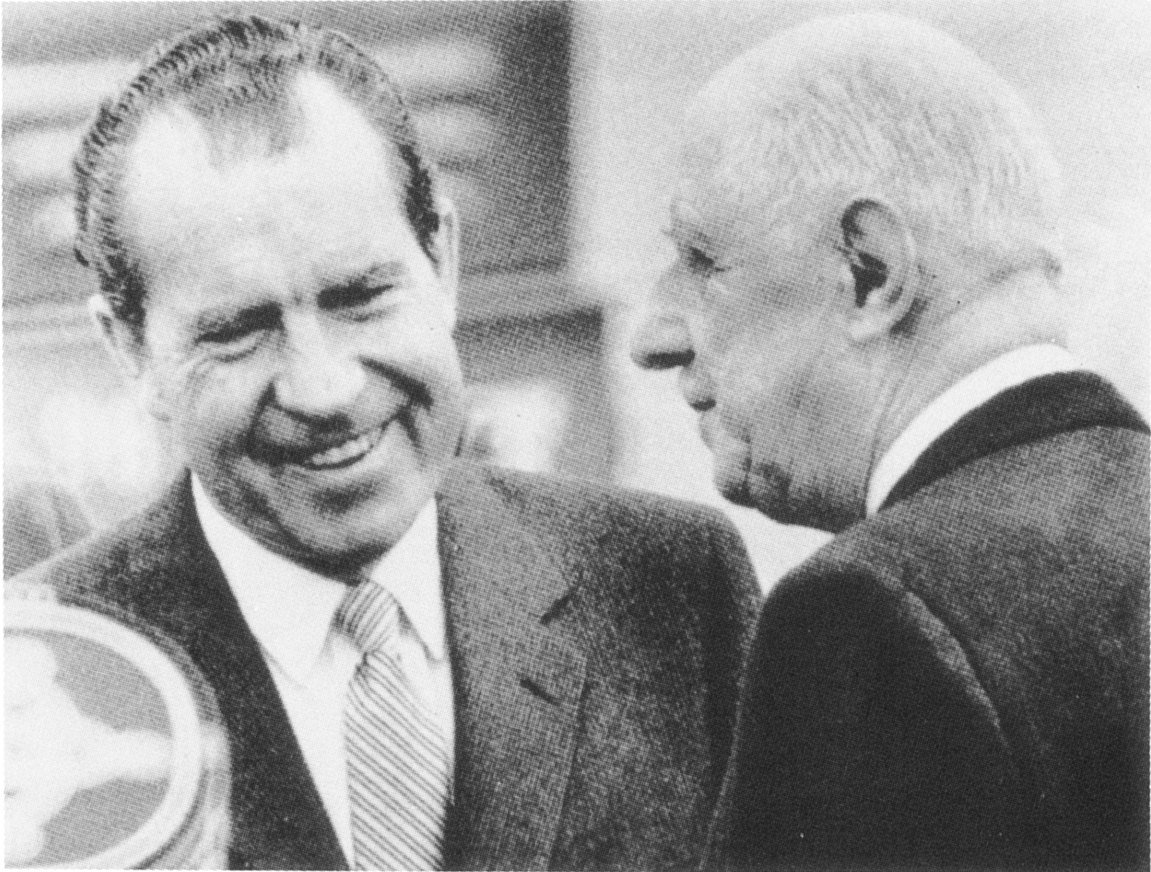
My conversations with de Gaulle were among the most valuable ones I had during my public career. (In Paris in 1969) (UPI/Bettmann Newsphotos)
A friendly reporter told me. The worst thing you can do to a member of the press corps is to prove that he has been wrong on a major issue.” That is precisely what I did on the Hiss case, and it would not be the last time. (UPI/Bettmann Newsphotos)
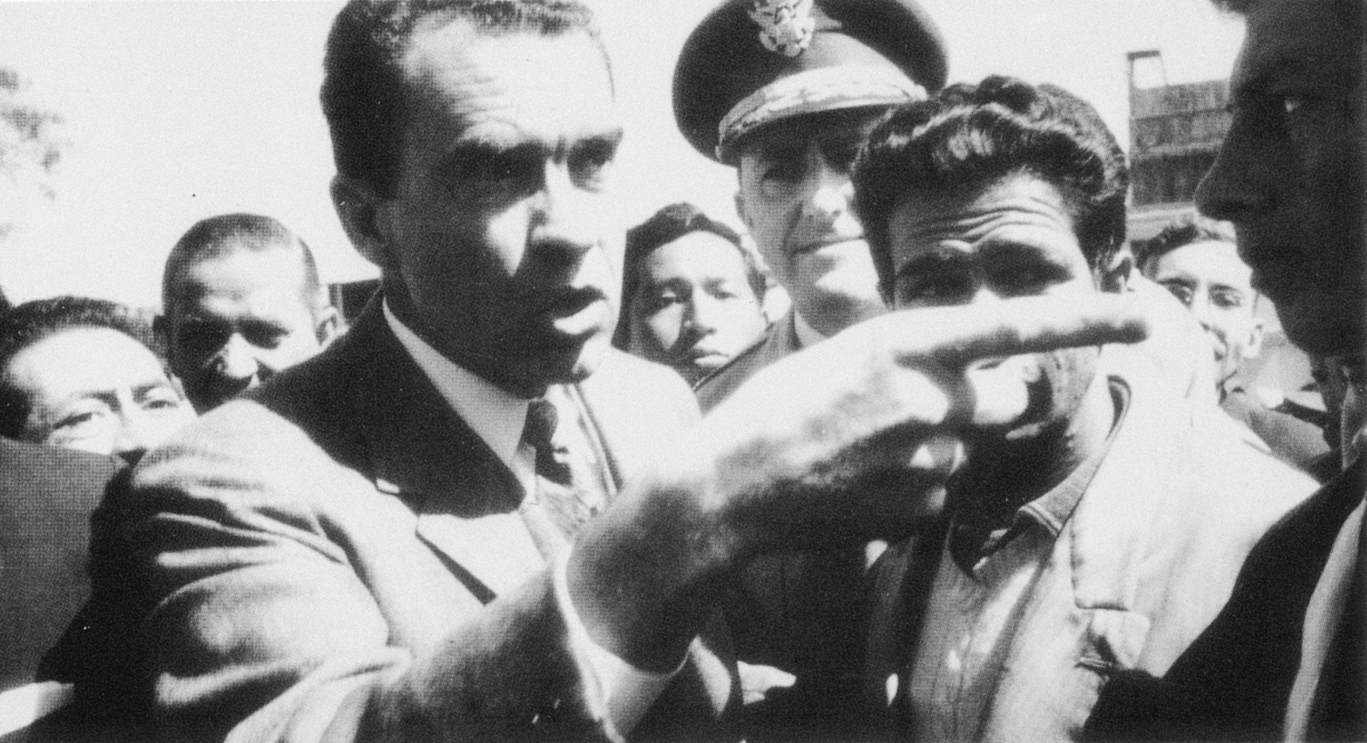
Most of the Peruvian students wanted to shake hands. But soon I felt something glance off my shoulder, and Vernon Walters (in cap behind RN) whispered in my ear, “They are throwing stones.” (In Lima in 1958) (Paul Schutzer Life magazine © Time Inc.)
My first debate with Kennedy was actually over the Taft-Hartley Act in 1947, when we were both first-term congressmen. On the sleeper train back to Washington, we drew straws to see who would get the lower berth. That time, I won. (With Kennedy after the first televised Presidential debate in 1960) (Paul Schutzer, Life magazine © Time Inc.)

If I had not taken a six-month moratorium from politics in 1967, I would have been chewed up in the early skirmishing for the nomination. Instead, the pieces fell into place. (With Julie, Tricia, and Pat on election night in 1968) (Claus Meyer/Black Star)
At the urging of Eisenhower’s doctor, I asked the President to cancel his plans to add an event to his schedule in Illinois, a key toss-up state in the 1960 campaign. (Campaigning with Eisenhower in 1960) (Al Fenn, Life magazine © Time Inc.)
A campaign teaches a candidate what the voters want, and voters learn what kind of leader the candidate will be. (Campaigning in 1972) (White House Photo)
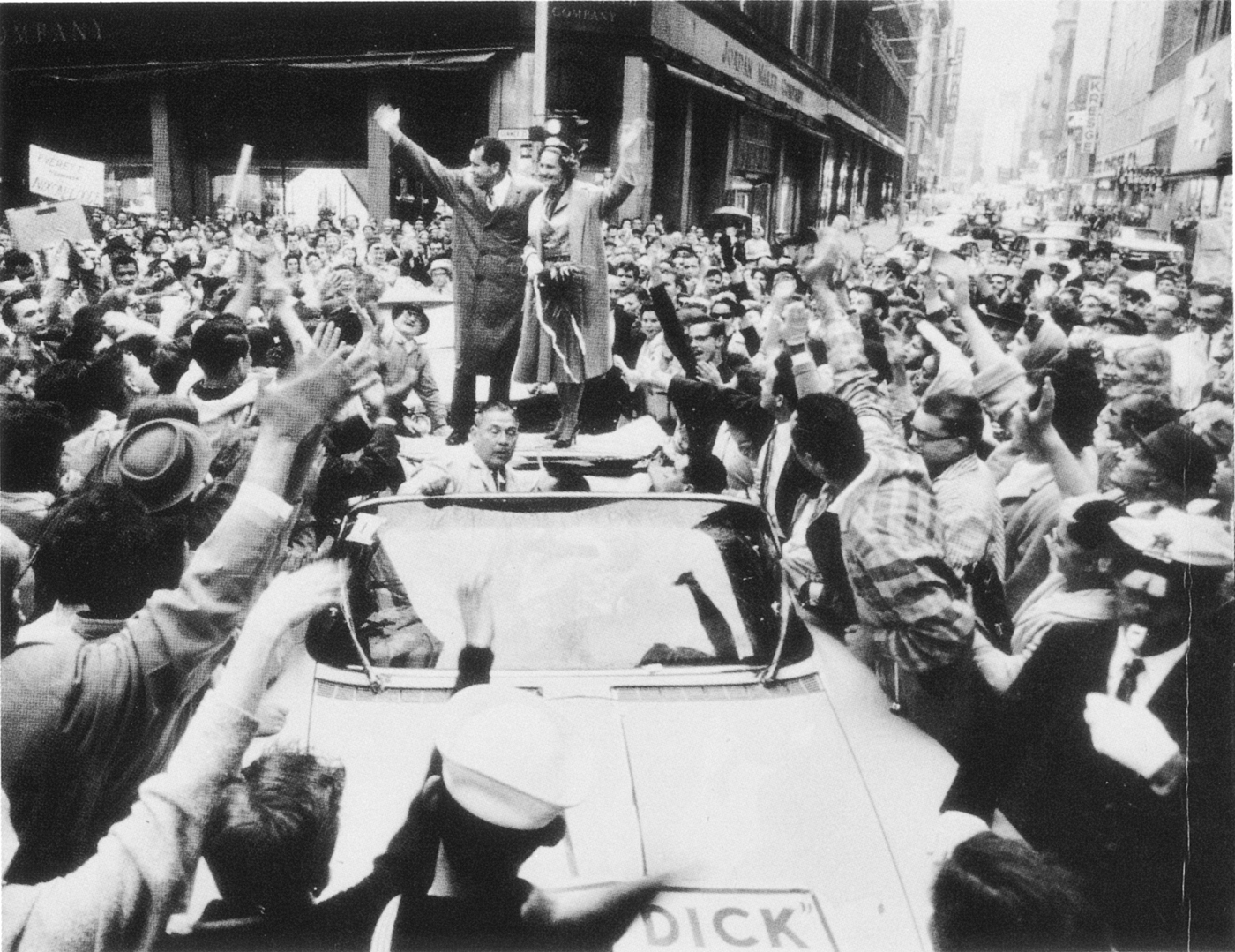
Today Secret Service agents protect candidates from maniacs, and pollsters protect them from voters. (Campaigning with Pat in 1960) (Joe Scherschel, Life magazine © Time Inc)
A politician should not assume that the more press conferences he has, the better. It is important not to cheapen the currency by becoming too available. (Meeting the White House press corps in October 1973) (White House Photo)
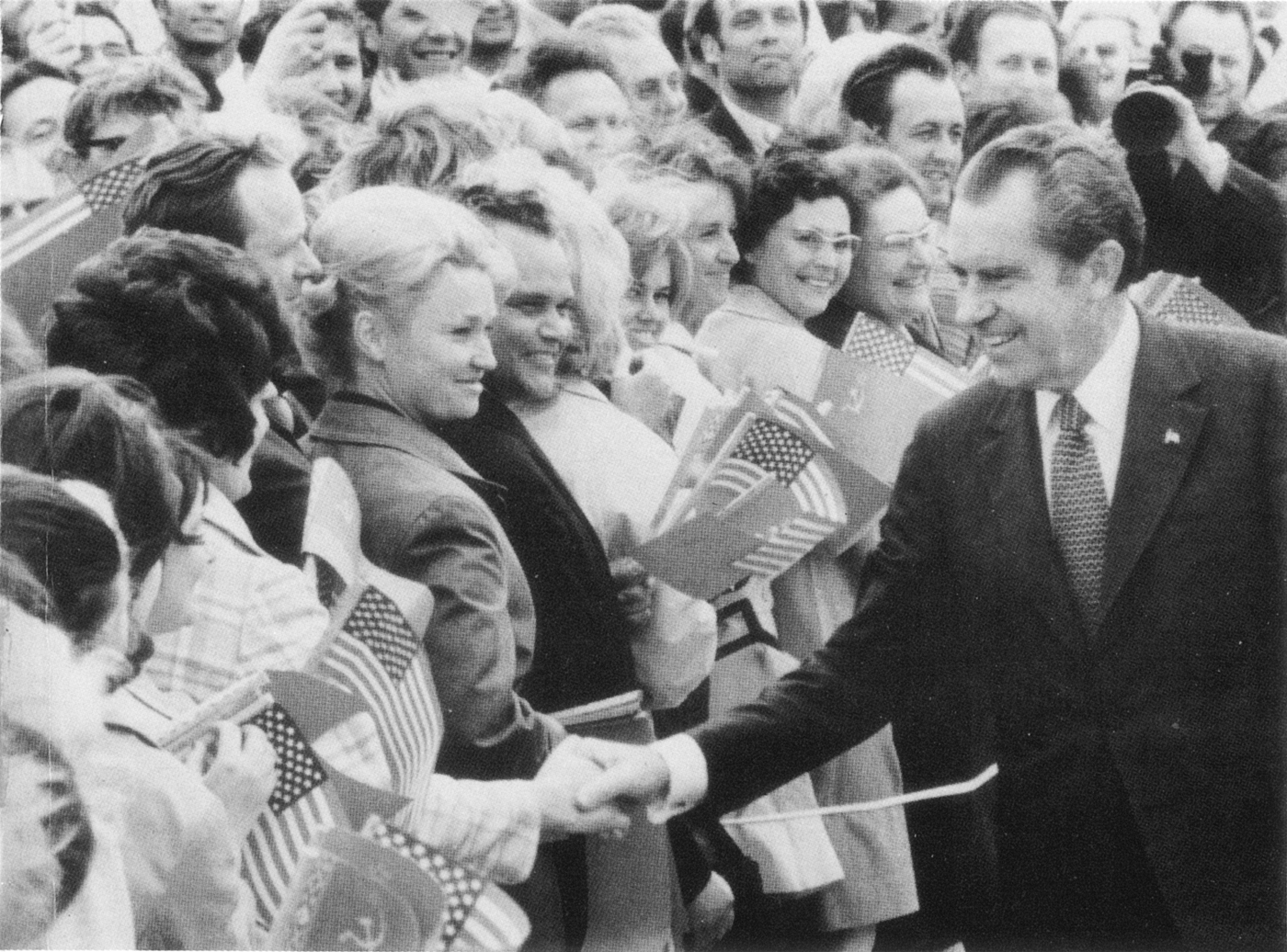
Russians and Americans can be friends. The governments of the Soviet Union and the United States cannot be—but they cannot afford to be enemies. (RN in Minsk, July 1, 1974) (White House Photo)
During the Kitchen debate with Khrushchev in 1959. Khrushchev jokingly tried to convince me he was being reasonable by calling one of his colleagues “a hopeless Communist.” (Elliott Erwitt/Magnum)
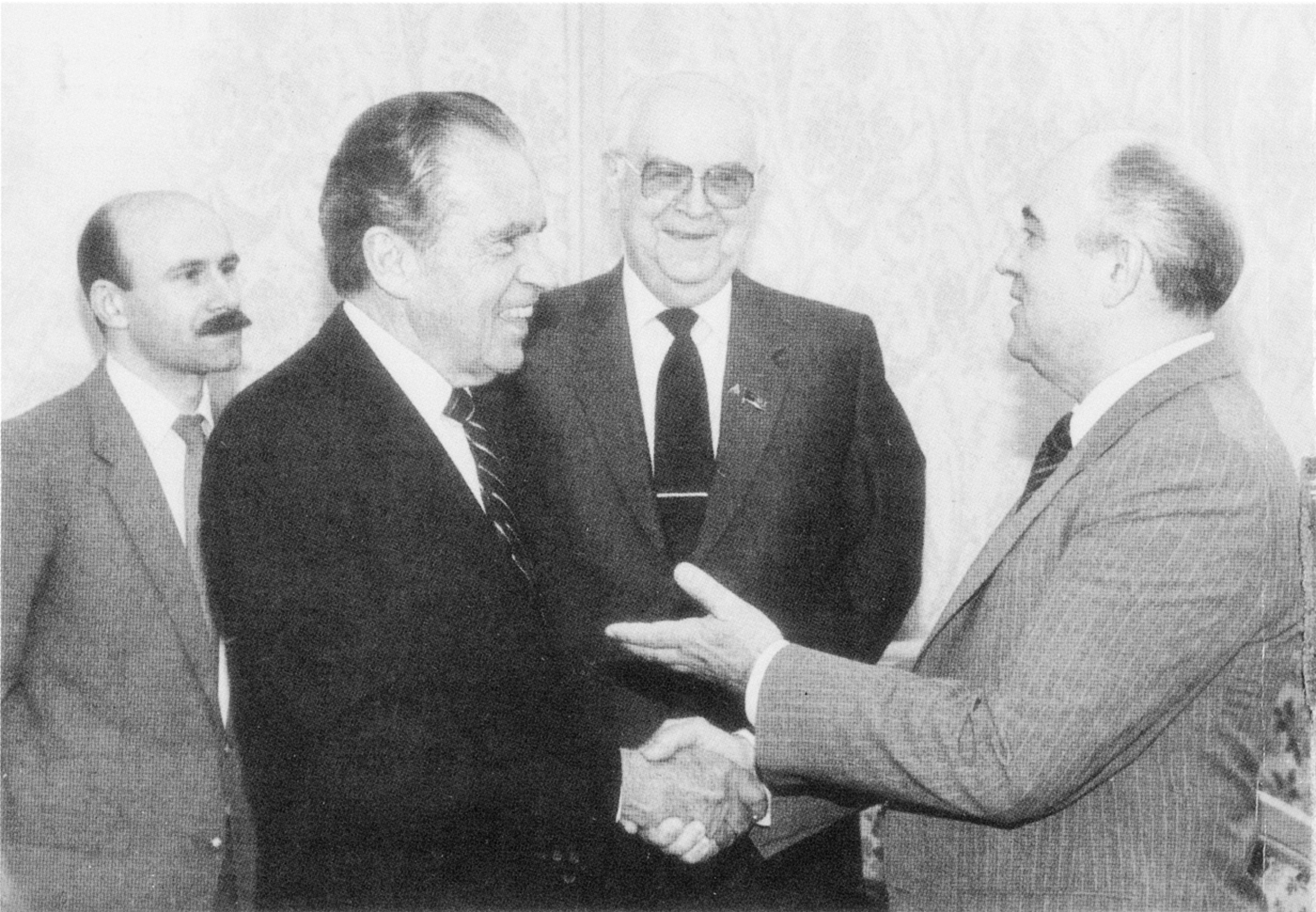
Meeting Gorbachev in 1986. Gorbachev also still believes in the fatally flawed tenets of Marxism-Leninism. His goal is not to replace the Communist system but to strengthen it. (Tass)
Had it not been for the support of my family and the thoughts and prayers of countless people I have never met, I would not have pulled through. (Leaving operating room in 1974) (© Tom Korody/Sygma)
My father had driving ambition—not for himself, but for his sons. My mother, my cousin wrote, “did what she did and was what she was through a strength and lovingness which welled up out of her good heart . . . ” (With Harold, Donald, and Richard, 1917)
The first time my picture appeared in the newspaper was in 1916. My mother gave us a nickel each to put in a collection basket for war orphans, and a photographer snapped our picture. (RN is second from right) (Los Angeles Herald)
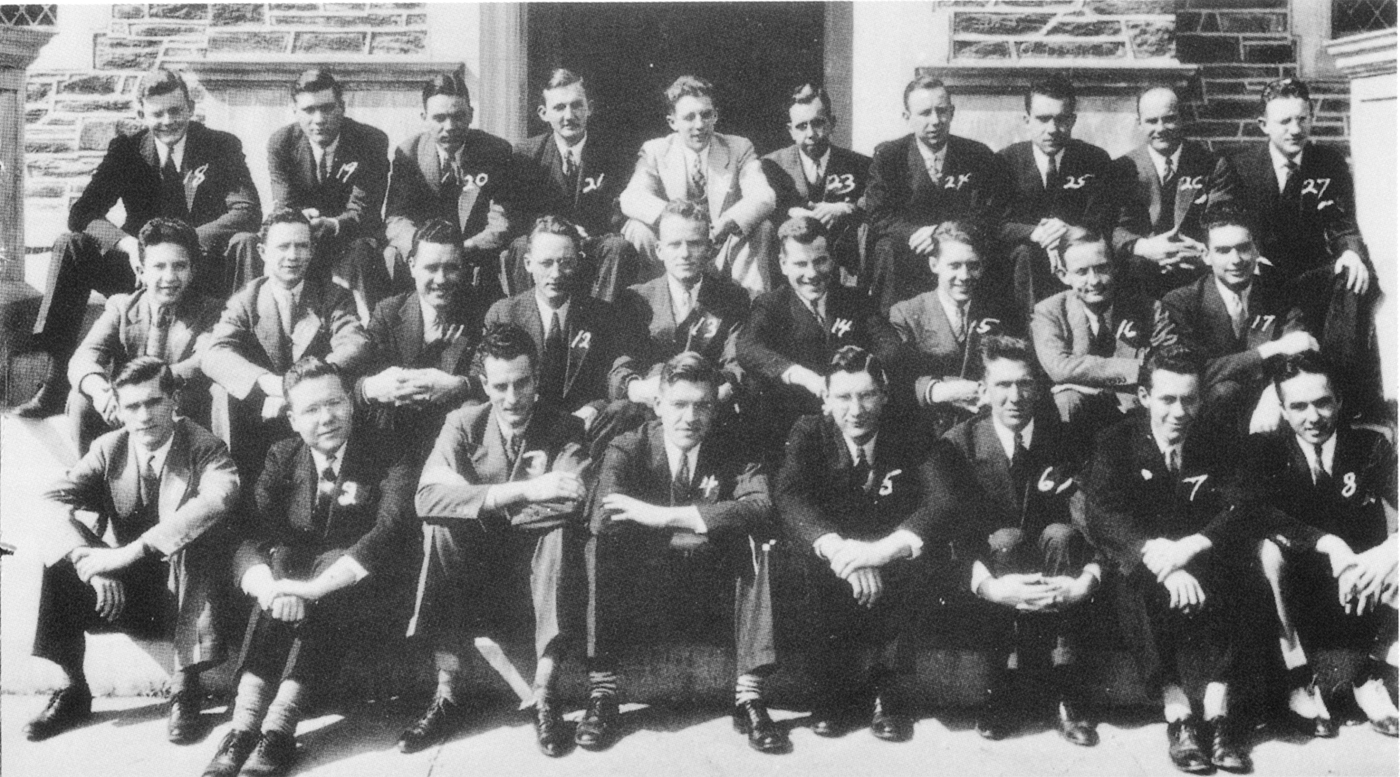
At Duke a friend told me I shouldn’t worry about keeping my scholarship. He said, “I’ve noticed how long you study in the law library. You have all that it takes to learn the law—an iron butt.” (RN, in back row, with his third-year class)
My press was excellent my first year in Congress. Along with Jack Kennedy, I was considered to be a comer with a good future. (With Pat and Tricia in Washington, Spring 1947) (UPI/Bettmann Newsphotos)

When Tricia was ten and I urged her to practice the piano more, she told me, “Daddy, you should have practiced more. If you had, you might have become famous and gone to Hollywood and they would have buried you in a special place.” (UPI/Bettmann Newsphotos)
Julie had a toy bunny she carried everywhere. When we were making a campaign commercial in 1950 and she came to the key line, “Vote for Nixon!” she sang “Vote for bunny!” instead. I won anyway. (With Julie, bunny, Pat, and Tricia) (UPI/Bettmann Newsphotos)
I began my first campaign by telling the story of how a group of men did a superhuman job on Bougainville after a Japanese air raid the night before. (RN in South Pacific, wearing helmet, at far left) (Courtesy USMC SCAT)
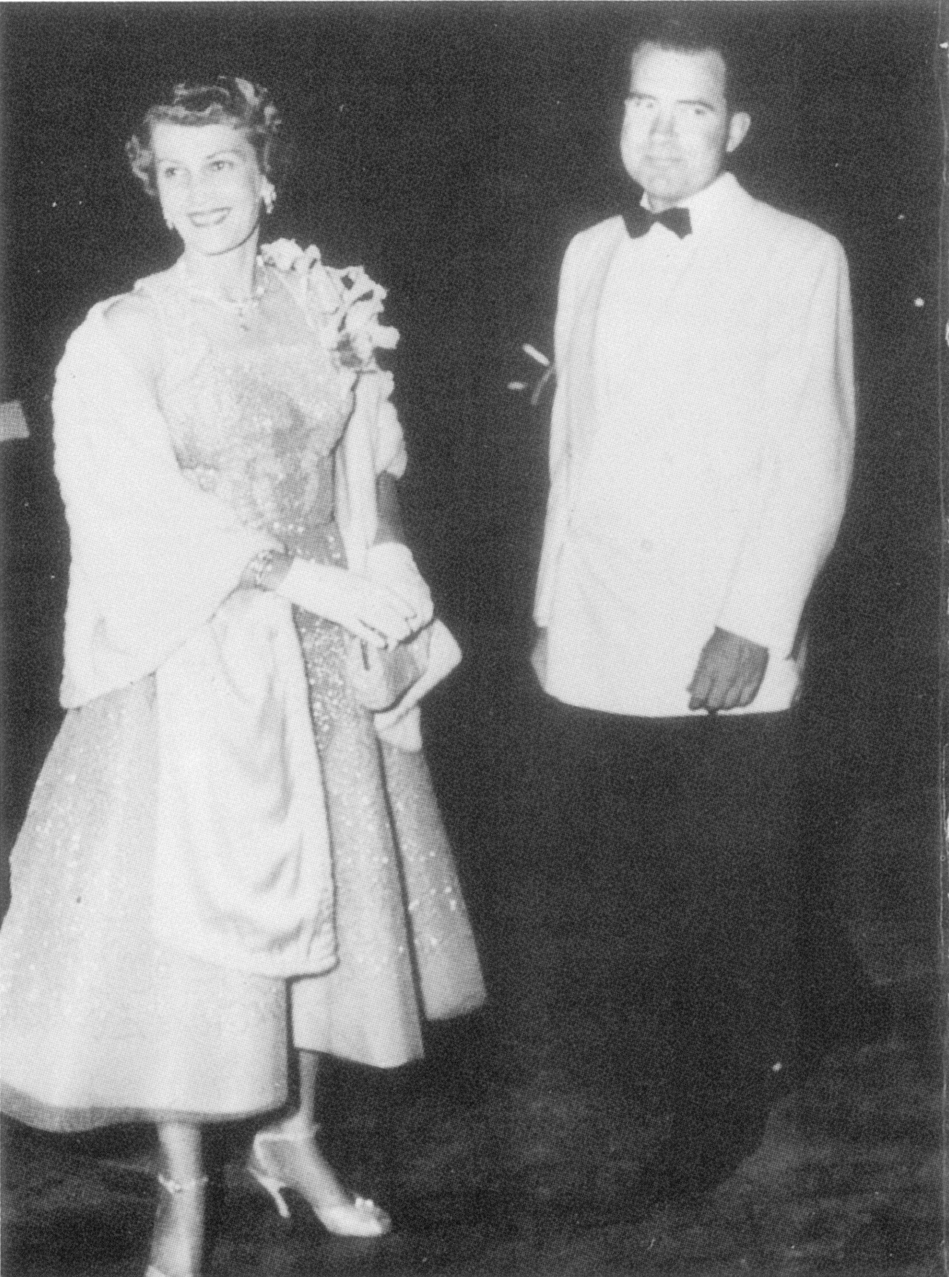
Senator Frank Carlson once expressed his unbounded appreciation for Pat’s campaigning ability. He said, “Dick, you’re controversial, but everybody likes Pat.” (In Los Angeles in 1955)
The Secret Service’s code name for Pat was “Starlight.” She fitted it to a T. (At the White House in 1972) (White House Photo)
Mrs. Nixon with Jennie Eisenhower and Christopher Cox on a visit to the “Sesame Street” set in 1981. When Tricia and Julie were growing up, Pat found time to compensate for my own lack of attention. Now we both enjoy our grandchildren. (Children’s Television Workshop)

RN at the circus in 1989 with Alex Richard, Jennie, and Melanie Eisenhower, and Christopher Cox (Photo Courtesy Ringling Bors., Barnum & Bailey Circus)
As I told a “Meet the Press” panel in 1988, when asked if I was trying to make a comeback, “What am I going to come back to? We already have a very good mayor in Saddle River, and we have a very good governor in the state of New Jersey.” (Photo by Roger Sandler)

At the Oxford Union in 1978 the questions were tough, and some were irreverent. But the students did not try to shout the speaker down. They wanted to hear what he had to say. (Pictorial Parade)



People are amazed that a political figure can speak without notes for forty minutes. Afterward, they congratulate me as if I had just announced a cure for some major disease. (In Chicago in 1985) (Copyrighted Chicago Tribune Company, all rights reserved, used with permission)

I make at least four outlines for every major speech. A single sentence can require hours of concentrated thought to frame and hone. (Dirck Halstead/Gamma Liaison)

Even after a speech has been prepared, I set aside at least an hour before the appearance to get my thoughts together and get up for the delivery. (En route by bus to a campaign appearance during the 1962 off-year elections)

After I was nominated for Vice President in 1952, I felt the demonstrations were going on too long. But Speaker Joe Martin said, “Let them cheer for a while longer. You have to get in the hay while the sun is shining.” (UPI/Bettmann Newsphotos)

The reporters had thought FDR’s Fala story was cute. They thought my Checkers story was corny. But the television viewers liked it, and that was all that mattered. (RN with family dogs Vicky and Checkers in 1960) (Bob Gomel, Life magazine © Time Inc.)

I find that when I am writing and run into a mental block, it is best to put the work aside. An idea or phrase will come to me on a quiet walk alone. (Ralph Crane, Life magazine © Time Inc.)

Silence can be a particularly effective tactic. If actions speak louder than words, there are times when silence speaks louder still. (White House Photo)

I have never watched myself on television. If I did, I would become self-conscious and my speaking would lose whatever natural quality it has. (Campaigning in 1972) (J.P. Laffont/Sygma)

A day did not pass that I did not hate the Vietnam War. Believing it was imperative to keep our commitments there did not lessen the burden. (In South Vietnam in 1969) (White House Photo)